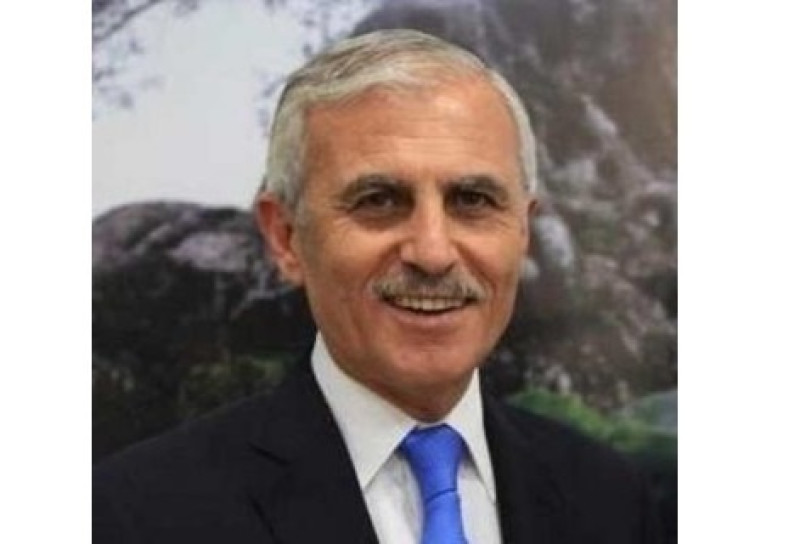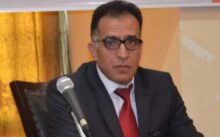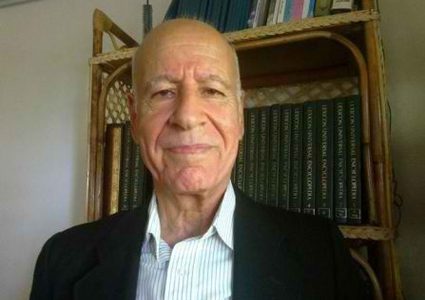After the genocidal war: how do we counter plans for political extermination?
Al-Khamisa News Network - Gaza

By Jamal Zaqout
The international announcement, led by Trump, to end the war came about for several reasons: first, the scale of the humanitarian catastrophe left by the genocidal war; and second, the global uprising that rallied for Gaza’s victims, folding in the Zionist narrative that denied the existence of the Palestinian people. Hundreds of millions around the world rose in support of justice in Palestine and demanded an end to the annihilation, including significant, unusually broad voices among Jews worldwide — even inside Israel — who opposed the extermination carried out by the leaders in Tel Aviv. The humanitarian disaster on all levels played a key role in exposing the falsity of the Zionist narrative and restoring validity to the Palestinian account. No one but those victims have the right to declare the victory in which blood prevailed over the sword. Indeed, the victims wrested from the criminal’s jaws a victory they are entitled to call, justly, a day of catastrophe and heroism. With the fall of this racist narrative fell anyone who tried to blame the victim as the executioner did, and the Zionist hasbara collapsed even within its American stronghold. Third, all this forced an unprecedented isolation of Israel, viewing it as a rogue state rather than simply as a state that considers itself above international law with Washington’s support. Trump read these shifts in American public opinion, particularly among Jews and within his own Republican base, as confirmed by polls, which prompted him to act to rescue Israel from its isolation and even from itself. Fourth — and perhaps no less important — the failure of the military option despite all the military support Washington provided and Trump boasted about in his Knesset speech: this mad militarism brought Israel only isolation and the stain of genocide that history will not erase.
This achievement was a moment of hope: life triumphing over death and survival from the furnace of genocide that claimed close to a quarter of a million innocent lives and left many more wounded by Trump’s upgraded munitions and weakened by starvation — roughly a quarter of the population of that narrow strip of land, one of the most densely populated places on earth. Racist fascism destroyed all the means of life in the sector’s cities, towns and camps, spawning revolutions, uprisings and battles of steadfastness and survival. Their legendary resilience, unprecedented in history, proved their worthiness of life and their attachment to the narrative and the land—soaked in the blood of their children, women and elders—and added meaning to what Gaza has represented for decades as a pillar of Palestinian nationalism, absorbed in the Gazan manner since the Nakba, and as a model for peoples fighting for freedom, national dignity and human justice.
Some may ask: who are these people who left their homes and land barefoot and naked, sleeping on the ground and under the sky since the Nakba of 1948? How did they become so stubborn and truly patriotic? Simply because they refused to repeat the betrayal of the regimes that handed over Palestine; their backs were against the wall, and as Darwish said:
“Gaza frees itself and its history every hour,
and it preserves its values by extreme closeness…
by sticking… by fusing with death.
Gaza is no longer a city; it is a burning battlefield
where the enemy’s victories, hopes and values are tested.
The enemy cannot claim it has defeated Gaza,
for occupation is not the final victory,
Gaza’s will remains the spark of truth and blood.”
Today Gaza questions us with its flowing blood on the altar of freedom: how can the shed blood remain a beacon of life in an age when annihilation erupts as humanity’s ultimate test? How can its sacrifices not be in vain? Here lies the test before those who make national decisions in confronting a fascism that shows no mercy to the weak.
The Gazan lesson: bury the transfer and prevent completion of our Nakba
If the weak point in Gaza’s great trial was how she was left alone with her spilled blood — despite the solitary stance of those who decided to explode the test of freedom — does that solitude justify such abandonment or waiting for her surrender, or even inviting it? The people’s suffering in Gaza exceeded human endurance, but the consciousness born of their experience taught them that surrender before those who seek to strip a people of their rights is certain death — a death unacceptable to the makers of life, the guardians of dignity, despite torment, loss and the destruction of every means of life. Gaza’s victory here was preventing the oppressor’s triumph over the victim and asserting the justice of its rights, which restored humanity’s honor in cities and capitals across the globe.
Had Gaza’s anguish been fenced in with the long-awaited unity, the continuation of the genocide for two full years would not have been inevitable. Is anything more precious than the blood and lives of the children spilled in the streets of its camps and poor neighborhoods, cries that reached out for that unity? Is there anything dearer than the unity of dignity that preserves the testament of blood and the covenant?
Gaza triumphed over its executioners and the criminals of its annihilation, but it cannot alone keep the pledge to the martyrs and the rights for which they gave their lives. Gaza triumphed over its pain. The peoples of the world who wage the struggle for justice and dignity and seek to restore human values trampled by war merchants and those who boast of their military industries have triumphed with it.
The announcement of a ceasefire was deserved, but it lacked sensitivity to the magnitude of the sacrifices, and once again Gazans’ questions gleamed in a sky that seems empty: will their leaders match their sacrifices and sufferings? Has the question of unity matured — the absence of which allowed us all to witness an attempt to marginalize Palestine at the forum announcing the ceasefire, removing what is most precious within it as it defends the dignity and rights of the entire people, revealing deliberate intentions to sideline it? When will our compass be purely Palestinian so our ship can reach the shore of safety? Is it time to submit to our people’s will for unity?
The people of Gaza deserve our listening — to the moans of widows and orphans, to the groans of the wounded, the bereaved and the displaced — not only to offer consolation in the largest and longest communal mourning in history, but to offer hope for a better life. Is there sincere hope outside the framework of reconciliation and unity and laying aside all that clings to our journey of factionalism and selfishness?
This is what Gaza and its people expect from us so we can be faithful, not only to their suffering and sacrifices, but to our people, their sanctities, freedom, dignity and the justice of their cause that prompted the awakening of peoples everywhere. Will that awakening reach us? Will we move toward reconciliation even if it angers the enemy? The freedom of nations is not achieved by yielding to solutions shaped by others, but by national unity and preserving national and social cohesion.






